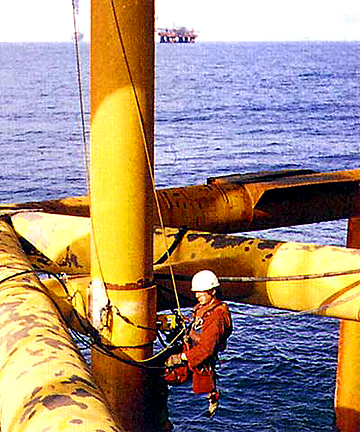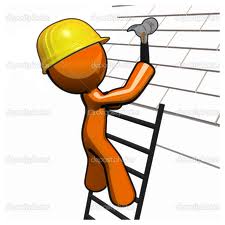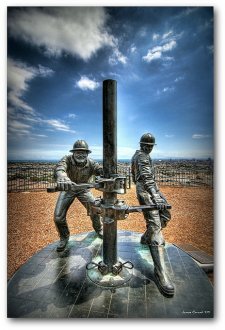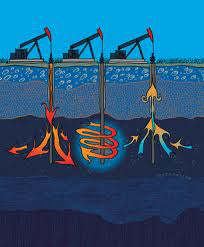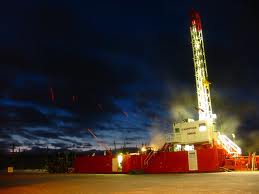Did you know there are jobs on offshore oil rigs ? In fact, if you’re a semi-skilled or skilled worker there are jobs for you. This is a booming global industry – so you have come to the right place.
Due to oil demand in the United States and overseas, it is possible to get an offshore rig job – even if you are searching for entry level oil rig jobs. Today, we will be discussing some of the oil rig offshore jobs available to you.
These are tough times economically – yet so long as you don’t mind tough tasks that require physical stamina and long hours, you’re in luck. If you’ve been contemplating a career change or are fresh out of college, this could be good for you. The rig companies often provide nice accommodations, and generally meet all living expenses (including food and laundry, plus travel expenses).
There are a variety of positions – from driller and derrickman to roustabout, toolpusher, floorman, painter, rig welder, storekeeper, safety man, rig electrician, watchstander, medic, crane operator, mudman and chief engineer. Following are details for some of the employment opportunities that are normally available on offshore oil rigs.
Offshore Oil and Gas Jobs: Job Description
1. Rig welders – Rig welders handle all repairs and installation of metalwork within the oil rig system. As you might expect, oil rigs run on hydraulics, electricity, and tons of metal. A rig welder is on-call constantly, and has to respond if an emergency should arise – even late at night. This job position is available to semi-skilled workers who are willing to be trained in before they are given the chance to work on the actual oil rig. Many oil rig jobs require some training, so if you don’t have any prior experience, that is ok, because many oil rig outfits will give you adequate training; this is especially true when you’re applying for a position on an offshore oil rig. A rig welder salary can vary – an underwater welder can make from $89k – $150k annually, while offshore rig welder salary is 61k to 66k .
2. Installation manager – Installation managers occupy a much higher rung than most semi-skilled workers on an oil rig. They have a significant level of autonomy, but at the same time they have much bigger responsibilities. Installation managers need to be on site most of the time, because they oversee the actual drilling for oil. In addition to monitoring the drilling operations and extraction operations of the oil drill, they also have to monitor other departments to ensure that each department is working at an optimum level. This is a very results-oriented job that can bring more than $80k a year to the right person.
3. Control room operators – Control room operators are considered the right hand men of chief barge engineers. (Chief barge engineers are considered the big bosses who have more autonomy, and have more access to crew and staff who can make their work much more efficient or easier, generally speaking.) In addition to performing vital engineering work, such as retrieval and proper anchoring of the physical structures of the offshore oil rig, control room operators may also be given more office-like tasks, such as processing the job permits of the men and women on board the oil rig. Control room operators may also be responsible for monitoring the float status of the oil rig (if a part of an oil rig suddenly sinks, control room operators can be held at least partially responsible). This type of off shore oil rig job can yield an average annual salary of 65k . Assistant CRO’s make around 59k a year.
4. Instrument technician – The instrument technician is responsible for the close monitoring of vital components and instrumentation, such as alarms and gauges of various drilling and extraction equipment on board the oil rig. According to simplyhired.com, an offshore instrument technician can earn approximately 61K per year.
Oil Rig Jobs: Equipment and Necessities
Life Offshore:
- A hard hat, safety glasses, safety boots and coveralls will be provided
- Meals: Always remove your gear for dining in the galley.
- Be sure to maintain a great attitude. It’s important to remain clear on why you chose to work offshore
- Steer clear – Don’t upset the medic, chef, or emergency radio operator – You could need their help
- Be prepared to do night shift work – after all, an oil rig is a “round the clock” operation.
- Smokers use safety matches – there are special smoking rooms where you will be required to use only these safety matches
If you still have an interest in oil rig entry level jobs, know one thing – you’ll have to get your safety certificate and pass a drug test to be considered. As to “offshore rig pay“, refer to this guideline –
Roustabouts in entry level offshore oil rig jobs may make $24 – $26 an hour; derrick operators $23 – $30 per hour, while drillers are at $36 – $39 approximately.

